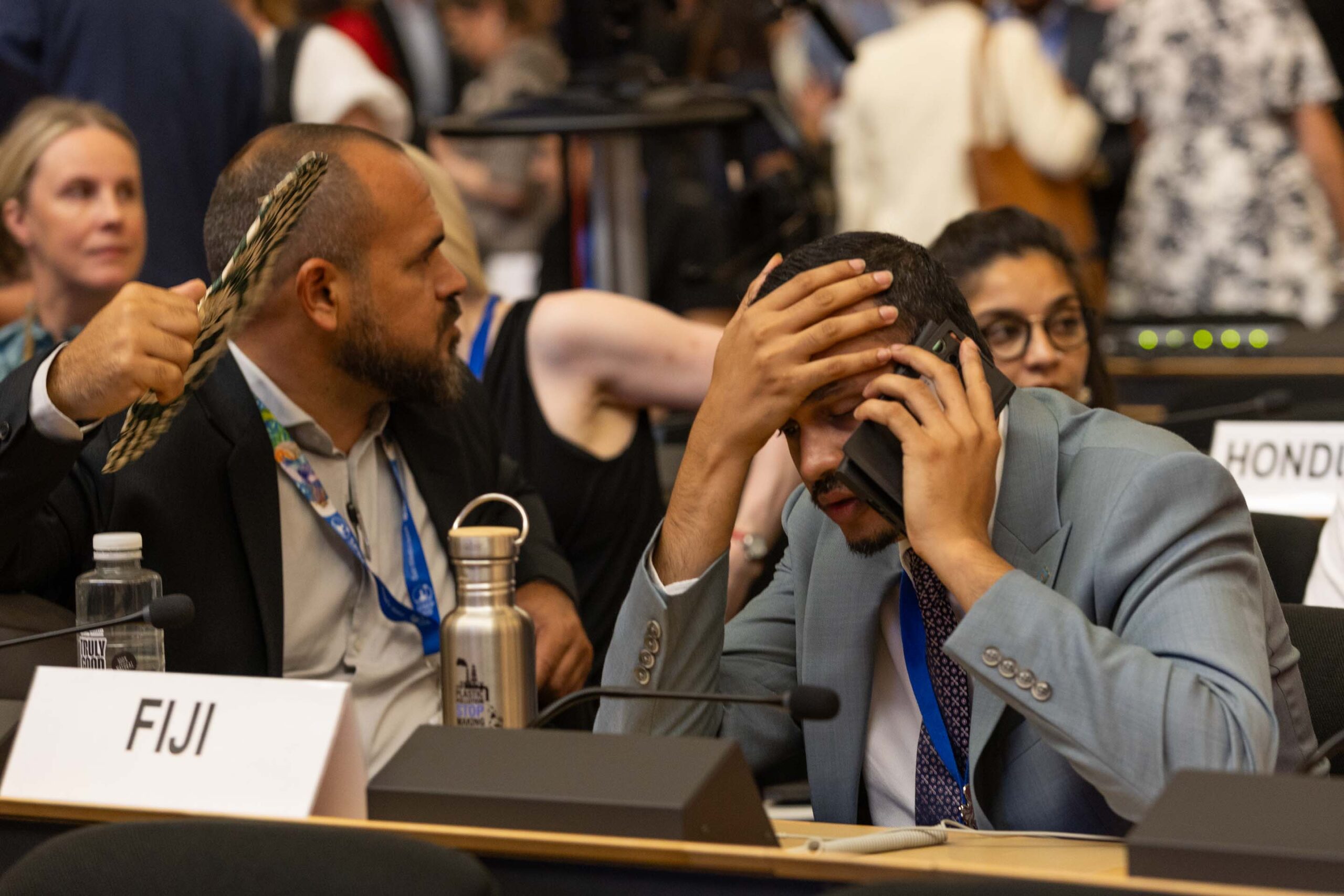Negotiators have failed to agree on a legally-binding global plastics treaty at the UN.
The treaty was an attempt to curb the effects of the 450 megatonnes of plastic produced every year. Of that plastic, just 10% will be recycled, a significant chunk will end up in landfill, and some of it will be burnt in open air, University of Canterbury chemist Sally Gaw told RNZ.
“For New Zealanders it’s often quite hard to visualise how much plastic some communities are living with, because we have good, but not perfect, waste management. So we’re not necessarily living with that burden of plastic waste that some communities are.”
At the negotiations in Geneva, New Zealand and several Pacific island nations are part of a “high ambition coalition” calling for limits on plastic production at the source. A group of oil-producing nations want the treaty to instead focus on cleaning up plastic waste.
“I don’t envy the teams negotiating the UN plastics treaty,” said Professor Oliver Jones at RMIT University in Australia. “They have to tread a very fine line between environmental protection and potential overregulation, and some people will be upset no matter what decisions they make.”
Cawthron researcher Trisia Farrelly is in Geneva, leading the Scientists’ Coalition for an Effective Plastics Treaty. She told 1News the treaty needs to be international, because burden of plastics is worldwide.
“This isn’t just for the plastic-producing countries, this is for the receivers of plastics – countries like Aotearoa New Zealand that have difficulties managing the plastics that we receive through trade, tourism, and tidal flows.”
Negotiations stalled when a consensus draft treaty presented by the chair of the event, was rejected by 80 of the high-ambition countries. The draft was described as a “toothless waste management instrument“.
The treaty talks will now resume at a to-be-specified later date – however there are hopes the high-ambition countries could draft up their own agreement outside of the UN process.
Associate Professor Nathan Cooper, Environmental Law, University of Waikato, commented for the SMC:
“This is a significant disappointment for most countries. But we have been here before. At the end of last year’s negotiations 100+ countries pushing for an ambitious, comprehensive and binding agreement, declared that “No treaty is better than a weak one”. The same sentiment this time is even stronger.
“If a consensus-based UN treaty remains elusive, High-Ambition coalition countries, including New Zealand, will likely proceed with their own agreement which other countries will be invited to join. This may be a swift and pragmatic response to the last three years of stalled and failing negotiations. No doubt, a credible response is desperately needed (plastic production rates are predicted to triple by 2060). But a limited, rather than universal treaty could exacerbate already unpredictable conditions around international trade and risk further entrenching the separation between those countries committed to ambitious action and those resistant. Like other ecological challenges, plastics pollution is a truly global problem, and maximal dialogue and collaboration are sorely needed.
“Other potential routes include continuing work under the United Nations Environment Assembly or adopting a plastics-focused protocol (an addition, sometimes optional) to an existing treaty. But even without these developments, it’s important to remember States already have a legally binding obligation in international law to prevent, reduce, and control plastic pollution on the marine environment (clarified by last year’s Advisory Opinion from the International Tribunal for the Law of the Sea).”
No conflict of interest declared.
Further coverage:
Global Plastic Treaty talks are in danger of collapsing – The Panel on RNZ
Hopes a last minute agreement can be reached in Geneva as UN members negotiate a global treaty to tackle plastic pollution – 1News at Six
Plastic treaty talks nearing collapse as nations remain deadlocked on production – Carbon News
EXPERT REACTION: Plastics treaty negotiations fail – AusSMC
